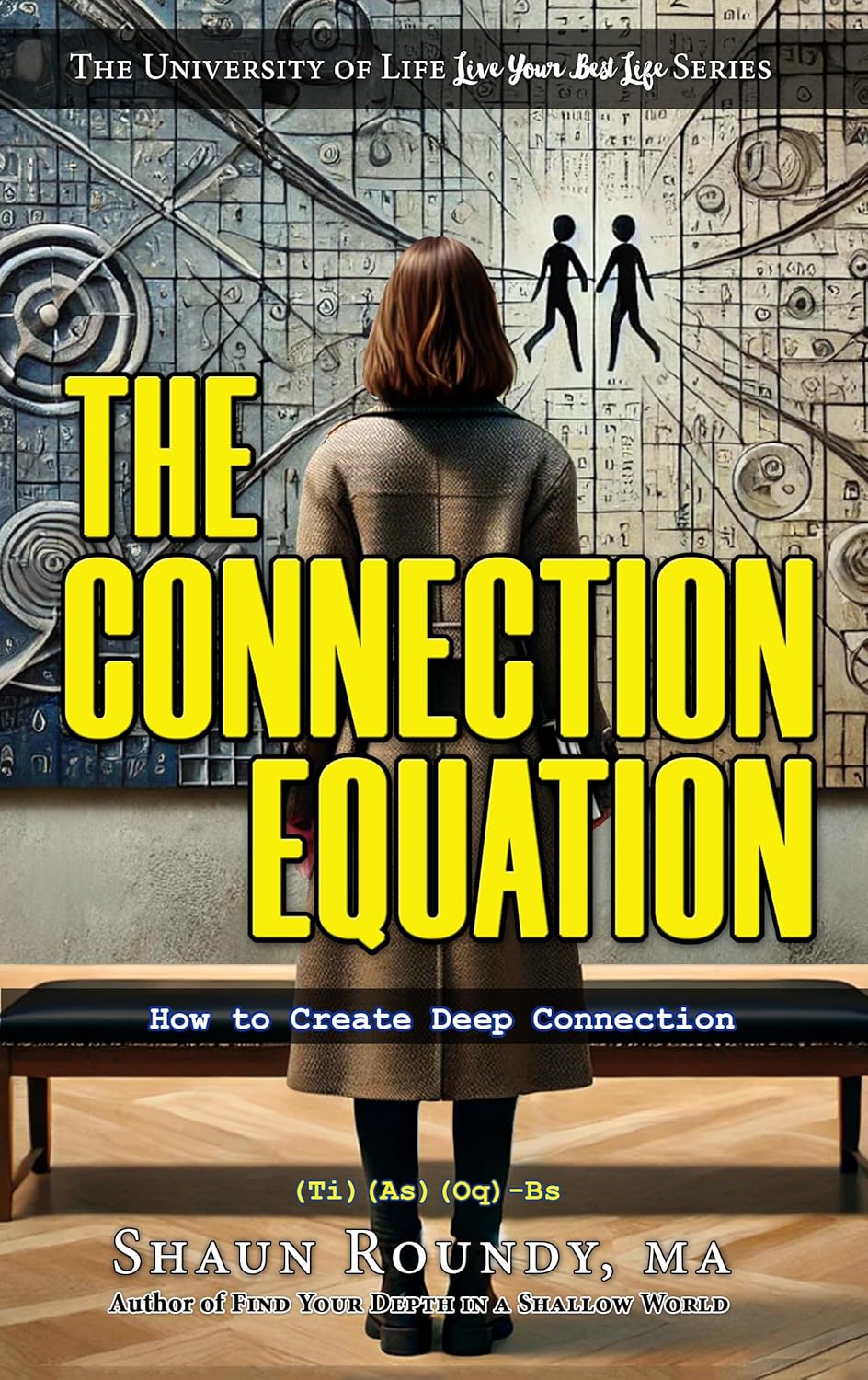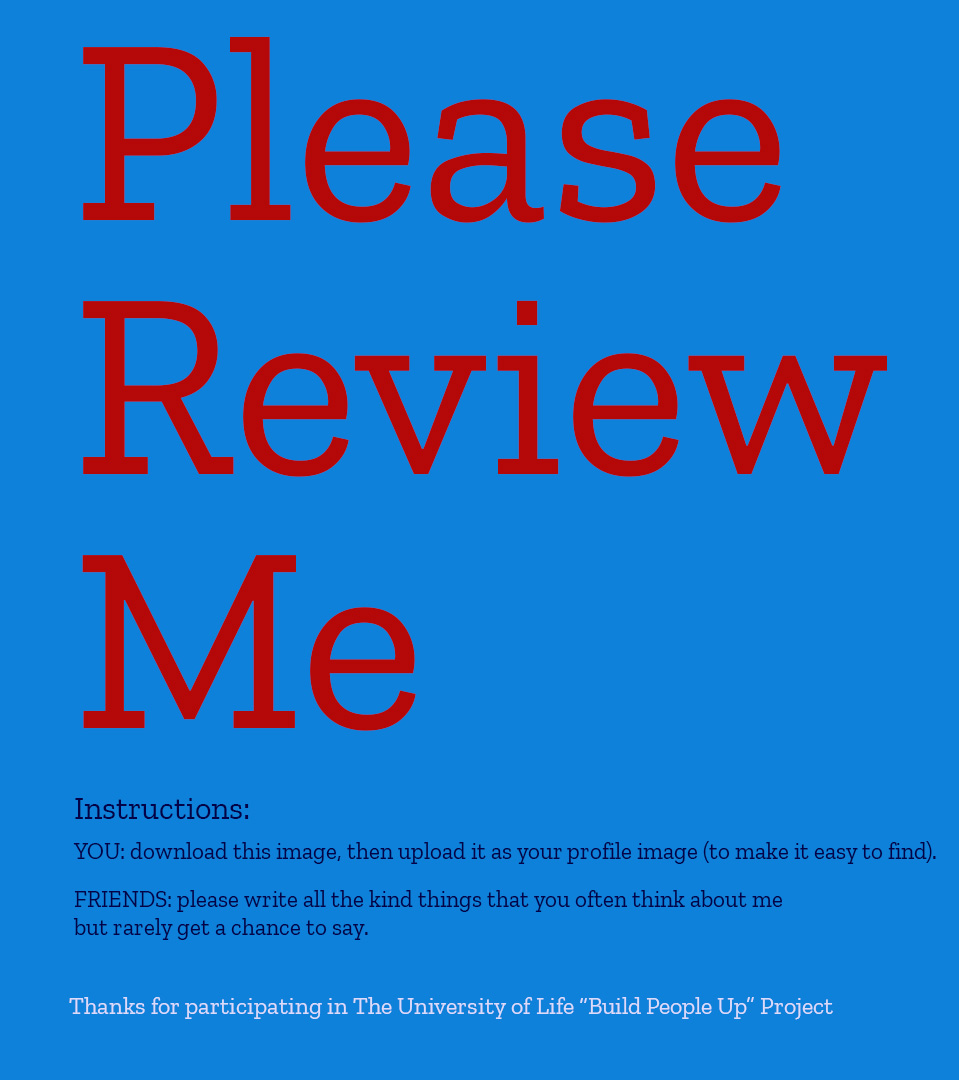Shame is one of the most damaging things you can do with your brain, and today’s podcase will teach you one of the simplest, easiest, and most effective ways to conquer it once and for all. Taken from pages 212-215 of Heal Your Emotions: a practical guide to speaking your brain’s languages and turning pain into power.
[Music] Welcome back to the University of life.
Today we’re going to discuss one of the most
damaging things you can do with your brain and a
really simple, easy, comfortable way that you can
correct it. You may be familiar with the topic
already but I bet you’re not familiar with this
solution, which is so easy and effective and all
around good. I’m Shaun Roundy and this comes from
two chapters of my book, Heal Your Emotions,
a practical guide to speaking your brain’s
languages and turning pain into Power. It’s got 12
chapters with an average probably 35 subchapters,
and the ones I’m going to read you today are 7.43
and 7.44. The chapter title of 7.43 is Shout Your
Shame. One of the most intense and damaging types
of fear is shame. Shame means that on some level,
you fear that if people knew some particular
thing about you, then they would abandon you,
which is a very real fear for the SCM.
Shame is rarely defeated by “talking yourself
out of it,” defending yourself against its
relentless accusations, which requires playing the
game on shame’s turf where it has the home court
advantage. Instead, conquer shame by transcending,
by rising above and denying that shameful thoughts
and feelings have any validity in the first place.
Just like other fears, shame can be relatively
easy to address. You may start as small and safely
as you like on the following continuum
and proceed only as far as you wish.
Repeat each step until it grows
comfortable before moving on.
- Once you’ve identified your source of shame,
imagine confessing it out loud while driving
alone in your car or anywhere no one can
hear you. Do this until you feel comfortable. - Once it’s easy to imagine expressing
your shame to no one, do it. Turn up
the music and whisper it under your breath
if necessary, then say it louder and louder
until you can shout it without feeling ashamed. - Imagine revealing your shame to a trusted friend.
Imagine them responding very supportively,
such as laughing it off as no big deal and
giving you a warm hug, assuring you that
they will love you forever no matter what. - Imagine revealing your shame to increasingly
large groups of people who all respond positively
until you’re shouting it with a megaphone
to the entire world. Your secret is now
totally out and you have nothing left to hide. - Note that this technique works best when you’re
not in the middle of a shame spiral to more
easily experience and blend positive feelings. - Actually tell your shame to people
who you trust. Give them a chance
to respond positively and prove that
it’s not as big a deal as you imagined. - We don’t necessarily recommend shouting your
shame to the entire world—not because it’s not
perfectly normal and okay to have flaws, but
because the world is sometimes an insecure,
emotionally reactive, stupid jerk who should
not be trusted with sensitive information. - But hey, if you feel that confident and have
truly reached the point where you don’t care
what anybody thinks and you want to go
for it, then bravo! Stand up, speak up,
and enjoy your empowerment. People
may admire your honesty and courage,
and realize that they, too, are
worthy of love despite imperfections.
What you will steadily recognize as you progress
through these steps is that nobody really cares
about your faults, that they’re not as big a deal
as your SCM led you to believe, and that most
people are more worried about their own acceptance
than whether you’re as flawed as everybody else.
Furthermore, anyone who can’t get
over your flaws doesn’t really count,
because that’s not really about you, it’s
about them and their mentality. If only they
loved themselves more, they would also find it
easy to forgive you and overlook your faults.
So this chapter, I noted, has some references to
previous chapters. Like it mentioned blending with
positives. One of the things explained early
in the book is if you ever go in and find your
negative feelings and use the various techniques
in this book to help to expand and release those,
always be sure to have in your other hand
positive feelings. You want to blend those
together – it’s much more effective
and much more comfortable and quick.
And now here’s chapter 7.44 Candor. This is
a story which illustrates the point.11 of
the 12 main chapters has two chapters like this
with ongoing characters, so in previous chapters,
you would have met Brittany and Bryan,
and they’re actors at a local playhouse.
“What do you like best about Daphne?”
Brittany asked as she and Bryan strolled
through the park after rehearsal one
afternoon. Daphne was her new role,
an irreverent, ruined party girl who nearly
destroys the lives of everyone who loves her.
“I like her audacity,” Bryan answered. “She
does whatever she wants, whenever she wants,
to whoever she wants, and never even considers
offering any apologies. I actually envy her. I
wish I could be that free, though of course
I wouldn’t abuse my power the way she does.”
“Hm,” Brittany replied, considering his answer.
She was having a little trouble getting into
character and hoped to find some angle to
help her understand the role more deeply.
“I don’t think I could live with myself
if I did half the stuff she does.”
“What about you,” Bryan asked,
“what do you like about Tony?”
“He’s such a sucker,” Brittany replied with a
laugh. “He’s so totally head over heels in love
with me that I can get away with whatever I want.”
“Yes,” Bryan agreed, “and that’s exactly why
love redeems you in the end, almost.”
“What do you mean ‘almost’?!” Brittany
objected. “I’m totally redeemed! I
return the diamonds and everything!”
“Yeah, but you’re still a selfish jerk,”
Bryan explained, “you just have no reason
to treat me poorly anymore. It would
take a lot more love to heal that!”
“That’s probably true,” Brittany nodded.
They walked along in silence for a ways,
then Brittany blurted out, “Help me,
Bryan! I don’t understand her! How can
I play her right if I can’t stand her?!”
Bryan smiled at her and they paused on the
path. “I think I know exactly what you need,” he
said. “Come here.” He took Brittany by the hand
and led her onto the grass and up a small hill
that provided a view of the park. From there,
they could see the pond, the soccer field, and
dozens of people walking or sitting in the sun.
“Okay,” he instructed, “tell me
what you hate most about Daphne.”
“She’s selfish!” Brittany accused.
“And heartless! And mean!”
“Okay, good,” Bryan nodded. “Now tell them.” He
pointed to the people around them in the park.
“What?”
“Tell them! Tell
them who you are, Daphne, and remember—you
couldn’t care less what they think of you.”
Brittany grinned and nodded. Not only
would this help her get into character,
but it would be fun to witness everyone’s
reaction. She launched straight into the
exercise with all the heart she could muster.
“I am a selfish bi-otch!” she shouted at the
top of her lungs. Several faces whirled about
to stare at the girl on the hill. “I am mean!
I don’t care about anybody except myself,
and I feel no remorse!” More faces turned
her way and Bryan and Brittany laughed
so hard that they could hardly stand.
As soon as she regained her
composure enough to speak again,
she continued. “I’m a terrible
kisser! And a horrible singer! I
think I’m perfect but I take myself too seriously
and I’m way too dramatic at everything I do!”
Bryan then joined in as Tony. “But I don’t care!”
he shouted. “I have no self worth, so I am blind
to all her faults! I let her treat me like
garbage, and I nearly pay for it with my life!”
Brittany took a deep breath and was just
about to start shouting again when a voice
from across the park shouted back. “I cheat on
my taxes!” a man yelled. “I let my dog poop on
my neighbor’s lawn, and I vote Republican!”
That was too much. Brittany and Bryan both
collapsed to the lawn, laughing so hard that
tears streamed from their eyes. Most people
ignored them by now, though a few looked
amused or mildly embarrassed for them.
Now I hope you will really actually put
this technique to use. For a quick review:
think of something that you don’t want other
people to know, that you’re even a little bit
ashamed of, or if you can’t think of something
like that, just think of something that you
wouldn’t feel comfortable saying out loud and
speaking up, even if it’s something totally
innocuous, like just imagine yourself standing
up in front of a group and saying, “Good morning,
everybody!” or whatever. One reason I want you
to do this is because the world needs it so much
these days, and the reason why is because the
world has become so critical, right? There are
trolls and critics and social justice warriors
everywhere attacking everything. Let me tell you
two or three reasons why they do this, to put them
in perspective. Number one, a lot of people do it
because they lack any impulse control, and they’ve
got some negative feelings, maybe some shame of
their own, and unconsciously, they they believe
that if they can take those negative feelings and
attack someone else with them, then (the technical
work for this is discharging) they think they can
discharge those emotions put them on someone else
and find peace and relief. That does not work,
obviously, it just makes the whole world
worse, and what comes around goes around,
and there’s a lot of that going around, so most
people suffer some from that. A second reason is
that they just lack critical thinking skills, or
at least they don’t have enough of them, so when
they hear some opinion which doesn’t perfectly
match with their own, they react and say,
“No! That’s bad!” I’m going to tell you a quick
story to illustrate. We were on a rescue one day,
my search and rescue team, when there was a
motorcycle rider who crashed in the mountains,
on kind of a steep hillside, where
the trail did a switchback We arrived,
and one of the local city ambulances was there
as well, and they were in charge of medical at
this point. Their team leader was was kind of in
charge, and one of our people saw the motorcycle,
that as soon as we lifted it and extricated
our patient, who was partly underneath it,
that motorcycle could slide and further complicate
everything. So she said, “Hey, I’m going to tie
off this motorcycle so it doesn’t slide,” and now
this other guy who just didn’t have full-blown
leadership skills yet fully developed, and because
that wasn’t in his little narrow focused world of
thinking, “Okay, we’re gonna extract this person,
we’re going to splint this leg, we’re gonna check
vitals, and do all those things,” he just shot her
down and he said, “No!” and just turned her off,
when in reality he should have said,
“Go ahead, it doesn’t hurt anybody.”
But that’s kind of an example of these limited
critical thinking skills and people having
their little narrow focus and and not really
being willing to take the time to consider new
information and integrate it, and or even allow
you to have your opinion while they have theirs.
That’s perfectly fine. And the third reason I’ll
mention, why people often criticize and shut
you down, is again not something they’re usually
intentionally doing, it’s just the culture where
they’ve been bred into, so the bandwagon effect,
and what people do it is that they have opinions,
and want to militantly control everyone else’s
thoughts and make them match, and if they don’t,
it’s cancel culture. It’s shut you down. It’s
shame you and control, as if by controlling other
people’s thoughts and feelings, we can make the
world good. Well, we can’t by controlling people.
You’ve seen sci fi movies where robots take over
the world or something. What does Humanity always
do? It revolts. We must have freedom. So if
you want to persuade, if you want to get people
on your side, you really have to do it by by
persuasion, because if you do it by control,
then you’re just becoming like North Korea,
creating all kinds of mental illness. So don’t
do that. One of the best ways you can do it – here
we come full circle – is to heal your own shame,
so when people attack you, you don’t take it
personally, because you’ve established your
foundation of “No, I’m okay, I’m not afraid of
you, I don’t care what you think.” I mean “I don’t
worry about it at least, and so I’m not gonna
react and be cowed and shunned by you, and I’m not
going to shut myself down and shove myself into
a tiny safe box in a world which needs people to
stand up and speak out with a little more love and
sanity.” So there’s my rant. I would love to fill
the world with people without shame, and some of
those people I’m going to disagree with me, even
on important topics, but that’s life, that’s
humanity, and I can accept that. As long as we can
treat each other with respect, then we can come
to the best solutions we can for everybody. So
thanks for listening to this long University of
Life rant & instructions. Please put that to use,
don’t be ashamed. I’ll just tell you, I don’t even
know you specifically, but I know you’re lovable,
because I’ve known a lot of people, and even some
of the biggest jerks, if I look closely enough,
you know what? I can find things in them worth
loving, and that’s the kind of person I want
to be. That’s the world I want to live in. So
thanks for joining me on this effort, and we’ll
see you next time here at youtube.com/UofLIFE or
UofLIFE.com or facebook.com/UofLIFE, and we’ll
continue this exciting, problematic, challenging,
interesting, engaging journey through life
together. See you next time. Until then, continue
becoming your best self and living your best life!
[Music]










Leave a Reply